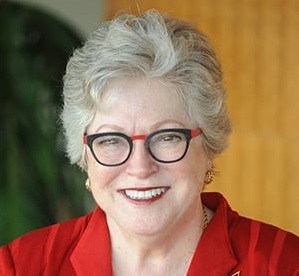 One of my favorite carols I enjoy singing and hearing each year during the Advent and Christmas season is “In the Bleak Midwinter.” It includes these poignant words: “What shall I give him, poor as I am?” It is the right question, of course, along with asking ourselves what constitutes a gift to Jesus.
One of my favorite carols I enjoy singing and hearing each year during the Advent and Christmas season is “In the Bleak Midwinter.” It includes these poignant words: “What shall I give him, poor as I am?” It is the right question, of course, along with asking ourselves what constitutes a gift to Jesus.
I thought of the carol’s question when I read the stunning news of Robert Dilday’s unexpected death on Dec. 22. Ordained just a week earlier as an Episcopal priest, Robert had given vigorous leadership as co-founder of the Interfaith Alliance for Climate Justice, and was eagerly looking forward to his parish ministry in Richmond. Most of us across Baptist life knew him in his religious journalism role with the Religious Herald of Virginia and later with Baptist News Global. As BNG’s editor in chief, he was my editor for my opinion column, always strengthening what I was trying to put into words.
I believe Robert’s roles as a journalist, a climate justice advocate and a priest (long before he was ordained) were a gift to Jesus. His singleness of devotion to truth, the church of Jesus Christ and the glory of creation came from an undivided heart.
Few of us readers of BNG could qualify as “poor” unless we are talking about “poor in Spirit.” When Matthew and Luke bless those who demonstrate this virtue, they are really talking about the humble. Humility has been the badge of those who have started new organizations in the Cooperative Baptist Fellowship movement, have depended upon relentless fundraising rather than a huge pool of money to draw from, and have sought to deepen our commitment to loving Jesus in ways that move us toward transforming the social landscape. Some of us have learned for the first time what real poverty looks like – in Appalachia, in the Mississippi delta, at the southern border.
Humility also accompanies American Baptist life, especially those neighborhood centers, always strapped for money, and those international missionaries who now must give themselves to raising support. Humility is the daily life of those who have come to the United States as part of the Burma Diaspora. Learning language, new systems and new ways to do church cannot be done without being poor in spirit.
Those of us in theological education know a new kind of humility as we seek to garner students, equip them for a changing horizon and keep the lights on. Faculty offer their scholarly and pastoral gifts without handsome compensation; staff labor for the love of the work, not the paycheck. As ministry has moved to the cultural margin as a respected vocation, so have the fortunes of seminaries, and one treasured seminary, Baptist Theological Seminary at Richmond, did not make it. Poor in spirit is our reality.
“His singleness of devotion to truth, the church of Jesus Christ and the glory of creation came from an undivided heart.”
Christian Rosetti’s carol concludes with the pledge, “yet what I can I give him: give my heart.” This is a life-long pursuit, to be sure. Our hearts are vulnerable things, and we need the Bible’s guidance to keep them invested in the right things. Among the things that impressed me most about Robert Dilday is that his heart was invested in the right things.
Scripture also warns us that our hearts are deceitful (Jeremiah 17:9), the place from whence the springs of life flow (Proverbs 4:23), revealed in the character of our speech (Luke 6:45), the center of life from which love of God is generated (Mark 12:30) and the locus of belief and confession (Romans 10:10), to cite only a few of many instructive texts.
The heart is the center of both the physical and spiritual life. To speak of giving Jesus our heart, which is the language many of us learned in our formative years of discipleship, is about giving him our whole self. This is far more than sentiment; it has to do with what we believe in strongly enough to sacrifice time, resources and personal identity in its quest. Giving our heart to Jesus is not only a private soteriological exchange; it has to do with a reoriented life that puts the well-being of others ahead of selfish interests. In other words, it is a persistent attempt to live as Jesus did, in the power of the Spirit.
Jesus began the Beatitudes by blessing the poor in spirit (Matthew 5:3), and he offered this promise: theirs is the kin-dom of heaven. They are the ones who live as God intends, and their very presence brings the reality of heaven to earth. They are always creating space for the work of goodness and inclusion and point beyond themselves to Jesus. They are not ones who have to wait for heaven; they are already enacting the beloved community Jesus initiated.
Just as the nativity scene gets rather crowded by the time all the invited show up, so can our hearts be crowded by the varied demands and opportunities of the season. We can easily miss the point of making room for Jesus in our hearts anew. So, come to our hearts, Lord Jesus; there is room in our hearts for thee.
